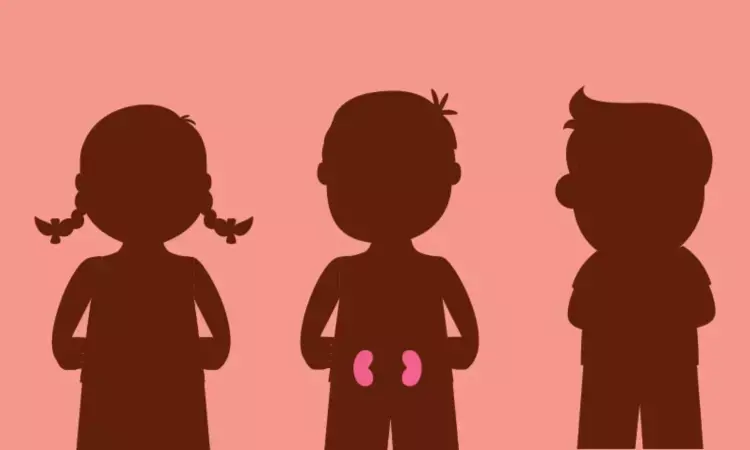- Home
- Medical news & Guidelines
- Anesthesiology
- Cardiology and CTVS
- Critical Care
- Dentistry
- Dermatology
- Diabetes and Endocrinology
- ENT
- Gastroenterology
- Medicine
- Nephrology
- Neurology
- Obstretics-Gynaecology
- Oncology
- Ophthalmology
- Orthopaedics
- Pediatrics-Neonatology
- Psychiatry
- Pulmonology
- Radiology
- Surgery
- Urology
- Laboratory Medicine
- Diet
- Nursing
- Paramedical
- Physiotherapy
- Health news
- Fact Check
- Bone Health Fact Check
- Brain Health Fact Check
- Cancer Related Fact Check
- Child Care Fact Check
- Dental and oral health fact check
- Diabetes and metabolic health fact check
- Diet and Nutrition Fact Check
- Eye and ENT Care Fact Check
- Fitness fact check
- Gut health fact check
- Heart health fact check
- Kidney health fact check
- Medical education fact check
- Men's health fact check
- Respiratory fact check
- Skin and hair care fact check
- Vaccine and Immunization fact check
- Women's health fact check
- AYUSH
- State News
- Andaman and Nicobar Islands
- Andhra Pradesh
- Arunachal Pradesh
- Assam
- Bihar
- Chandigarh
- Chattisgarh
- Dadra and Nagar Haveli
- Daman and Diu
- Delhi
- Goa
- Gujarat
- Haryana
- Himachal Pradesh
- Jammu & Kashmir
- Jharkhand
- Karnataka
- Kerala
- Ladakh
- Lakshadweep
- Madhya Pradesh
- Maharashtra
- Manipur
- Meghalaya
- Mizoram
- Nagaland
- Odisha
- Puducherry
- Punjab
- Rajasthan
- Sikkim
- Tamil Nadu
- Telangana
- Tripura
- Uttar Pradesh
- Uttrakhand
- West Bengal
- Medical Education
- Industry
Idiopathic nephrotic syndrome has a high risk for relapse in ethnic children: study

Idiopathic nephrotic syndrome may have decreased incidence in children with ethnic variation, but a high risk for relapse, suggests a study published in the Official Journal of the American Academics of Paediatrics.
Nephrotic Syndrome is a condition wherein excess albumin is released from the body via urine, indicating damage to one or both the kidneys.
The kidneys have many folds of minute blood vessels and each of these blood vessels is called a glomerulus. The function of glomeruli is to filter substances from the blood into the urine. In Nephrotic syndrome, these glomeruli are not able to function normally. Although nephrotic syndrome can affect people of any age, it's usually first diagnosed in children. When the exact cause for this abnormality cannot be pinpointed, it is referred to as Idiopathic Nephrotic Syndrome.
A group of researchers from the University of Amsterdam, Netherlands conducted a study to gauge the overall pooled weighted incidence and risk for relapse of idiopathic nephrotic syndrome in children.
The researchers selected a total of 73 studies that reported incidence (per 100 000 children per year) and/or risk for relapse (the proportion of patients who experience more than 1 relapse) of idiopathic nephrotic syndrome in children (age: less than 18 years). They finalized 27 incidence and 54 relapse studies. Following which a quality assessment was conducted, wherein data was extracted related to study design, localization, sample size, and patient demographics, characteristics, incidence, and risk for relapse.
The findings of the study are as follows:
Ø The overall pooled weighted estimate of the incidence was 2.92 per 100 000 children per year (95% PI: 0.00–6.51).
Ø In non-western countries, the incidences were higher (P < .001).
Ø The incidence was slightly lower in white children.
Ø The overall pooled weighted estimate of the risk for relapse was 71.9% (95% PI: 38.8–95.5).
Ø Incidence was constant between the years 1945 and 2011(P = .39), while the risk for relapse decreased significantly (P = .024), from 87.4% to 66.2%.
The researchers concluded that though idiopathic nephrotic syndrome shows decreased incidence with ethnic variation, there is a high risk for relapse. Despite the use of corticosteroids to bring down the risk for relapse, it remains unacceptably high, thus undermining the need for alternative treatment modalities.
Reference:
A study titled, "Incidence and Relapse of Idiopathic Nephrotic Syndrome: A meta-analysis" by Veltkamp F et. al published in the Official Journal of the American Academics of Paediatrics.
DOI: https://doi.org/10.1542/peds.2020-029249
Dr. Shravani Dali has completed her BDS from Pravara institute of medical sciences, loni. Following which she extensively worked in the healthcare sector for 2+ years. She has been actively involved in writing blogs in field of health and wellness. Currently she is pursuing her Masters of public health-health administration from Tata institute of social sciences. She can be contacted at editorial@medicaldialogues.in.
Dr Kamal Kant Kohli-MBBS, DTCD- a chest specialist with more than 30 years of practice and a flair for writing clinical articles, Dr Kamal Kant Kohli joined Medical Dialogues as a Chief Editor of Medical News. Besides writing articles, as an editor, he proofreads and verifies all the medical content published on Medical Dialogues including those coming from journals, studies,medical conferences,guidelines etc. Email: drkohli@medicaldialogues.in. Contact no. 011-43720751


